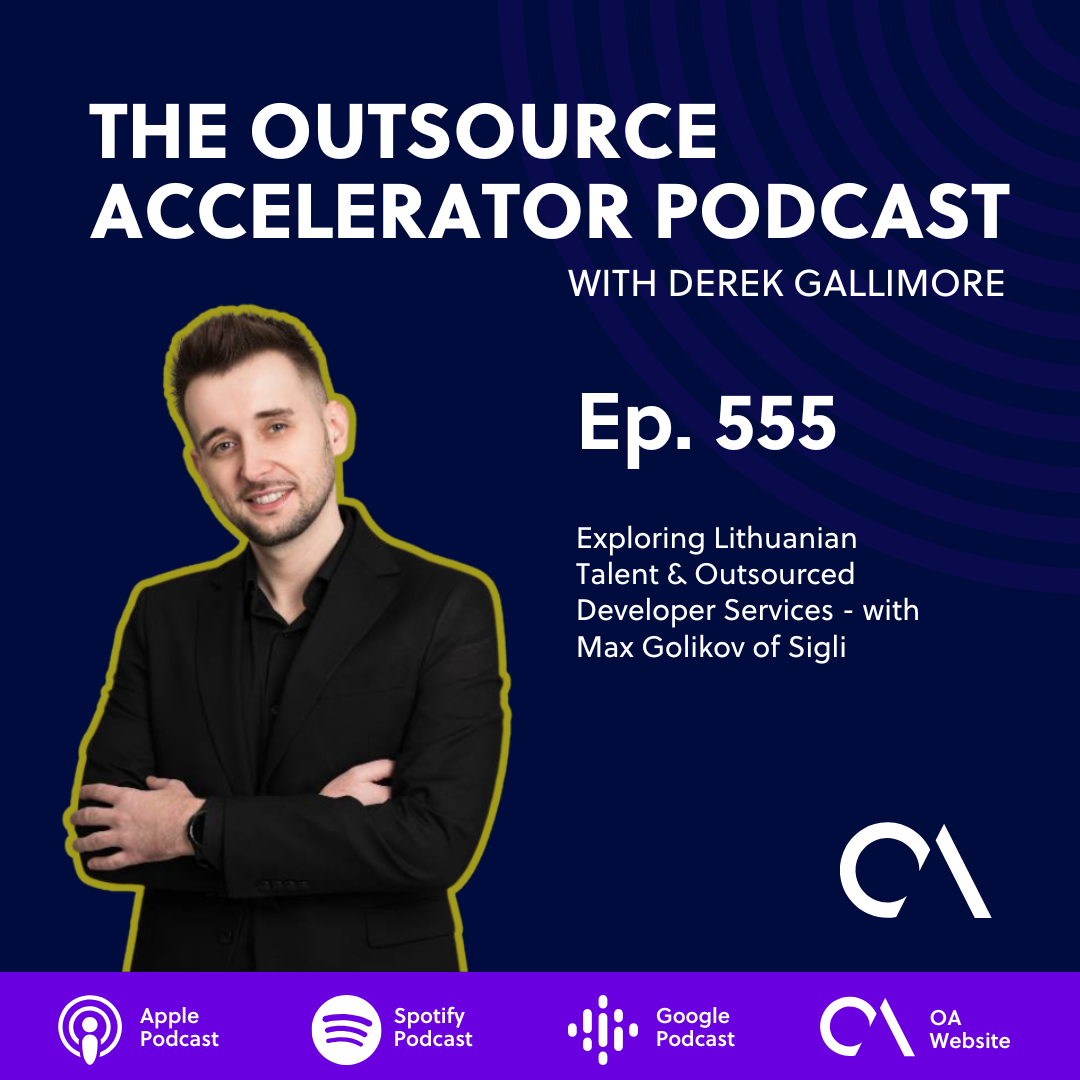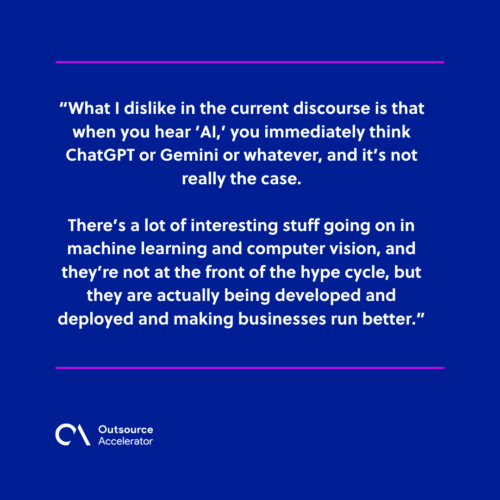Exploring Lithuanian Talent & Outsourced Developer Services – with Max Golikov of Sigli

In this week’s episode, we visit Lithuania, a small but highly capable country in Northern Europe that’s making waves in the software development space.
Through conversation with Max Golikov, Chief Business Development Officer of Sigli, we explored how his company delivers outsourced development services, what makes Lithuania a strategic location for tech talent, and how artificial intelligence is changing the expectations of both engineers and clients.
Sigli
Sigli is a Lithuanian-based outsourcing firm specializing in high-quality software engineering.
As Max explained, “We are a team of about 100 people, give or take, and our focus is on delivering high quality software solutions for our clients all over Europe.”
Their work spans both project-based delivery and long-term staff augmentation.
“Our clients need either specific pieces of software developed and we help them with that, or they may require additional workforce. We then provide our people to work for them just remotely as parts of their team integrating seamlessly,” Max said.
This dual approach allows Sigli to work with both mid-sized companies and large enterprises.
“We’ve always been focusing on mid to larger size businesses, and their projects are also pretty large. They can go on for years and involve dozens of people and many teams from different countries,” Max noted.
Beyond technical delivery, Sigli also invests in professional development.
“Every engineer has a mentor within the company, somebody who is more proficient in something they want to be proficient in, and they help those people further along on their developmental path,” Max explained.
Lithuanian offshore talent
Lithuania’s advantages as an outsourcing hub go far beyond cost savings. Although not originally Lithuanian himself, Max has lived and worked there since 2018.
“At the very least I’m able to survive here, and that in and of itself is a testament to the environment and how supportive it is to outsiders coming in and doing business,” he said.
He pointed to strong infrastructure and connectivity as critical strengths.
“There’s a very developed level of connectivity, which is very important for tech. We have great internet, great infrastructure for innovation, [and also] strong connections at the university level,” Max shared.

English fluency is another key advantage, making collaboration with European and US clients seamless. Salaries, while higher than offshore destinations, reflect both talent quality and cultural proximity.
“Our hourly rates [are not] cheap definitely, but what we are trying to give is flexibility and quality,” Max explained.
The country’s location also plays a role in its appeal.
“You’re probably two hours away from most European capitals by plane, [and that] creates a great environment, a very international, very developed society eager to contribute,” he said.
The reality of AI in tech and development
When discussing AI, Max first establishes what the term actually means.
“For us within the tech scene, AI has always been there. The race towards artificial intelligence has been on everyone’s minds since the very first computers were invented.
Now what is being called [AI] is actually a collection of many different technologies that have always been in use in one place or the other.”
He notes that much of the public discourse around AI is driven by hype.
“It helps a lot in particular use cases, [but] LLMs specifically as a part of AI [is] only a small part.
A lot of practical AI comes down to more ‘boring’ stuff, and for us, that has always been around data.”
Max makes it clear that it’s truly data that lies at the heart of AI technologies. With good data, the real beneficial use case of artificial intelligence goes far beyond generative language models.
“Any AI project that exists or [is going to] exist is very reliant on the type of data that company has access to. Without good data, it’s garbage in, garbage out.
What I dislike in the current discourse is that when you hear ‘AI,’ you immediately think ChatGPT or Gemini or whatever, and it’s not really the case. There’s a lot of interesting stuff going on in machine learning and computer vision, and [they’re] not at the front of the hype cycle, but they are actually being developed and deployed and making businesses run better.”

The evolving landscape of AI and client demand
Client demand for AI projects has been growing, but expectations are shifting toward more realistic goals.
“Even last year, a lot of requests that are connected with AI came to us with a very high-level vision of what they wanted to do,” Max recalled.
Those big visions often clashed with practical realities.
“You need to train a specialized model on lots and lots and lots and lots of data. So naturally it would take millions of years to do that. Once clients understand that, they go, ‘maybe some other time.”
Now, the focus is on achievable improvements. “Nowadays more and more requests are much more grounded, much easier to do, and have much more going for them in the beginning,” Max explained.
For Sigli, this reflects a broader truth: outsourcing is not just about cutting costs.
“Some clients value bigger savings, but others value proximity, cultural alignment, and the ability to visit and work closely with their teams. Those are the clients we usually find ourselves working with,” Max said.
As AI continues to evolve, Max believes the most valuable outcomes will come from data-driven applications rather than hype-driven initiatives.
“For us, it all comes down to the data. If the data is there, then any project is feasible to do. If the data isn’t there, then regardless of the purchases you have access to, it’s probably better to focus on something else instead of AI.”
You can learn more by visiting Sigli’s website. Max is also open for questions via his LinkedIn profile, and himself is the host of the Innovantage Podcast.
If you’re interested in learning about outsourcing, send us an email at ask@outsourceaccelerator.com.







 Independent
Independent




